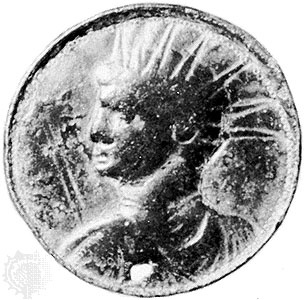Pythagoras
Greek philosopher and mathematician
born c. 580 BC, Samos, Ionia
died c. 500, Metapontum, Lucania
 Greek philosopher, mathematician, and founder of the Pythagorean brotherhood that, although religious in nature, formulated principles that influenced the thought of Plato and Aristotle and contributed to the development of mathematics and Western rational philosophy (see Pythagoreanism).
Greek philosopher, mathematician, and founder of the Pythagorean brotherhood that, although religious in nature, formulated principles that influenced the thought of Plato and Aristotle and contributed to the development of mathematics and Western rational philosophy (see Pythagoreanism).Pythagoras migrated to southern Italy about 532 BC, apparently to escape Samos's tyrannical rule, and established his ethico-political academy at Croton (now Crotone).
It is difficult to distinguish Pythagoras's teachings from those of his disciples. None of his writings have survived, and Pythagoreans invariably supported their doctrines by indiscriminately citing their master's authority. Pythagoras, however, is generally credited with the theory of the functional significance of numbers in the objective world and in music. Other discoveries often attributed to him (e.g., the incommensurability of the side and diagonal of a square, and the Pythagorean theorem for right triangles) were probably developed only later by the Pythagorean school. More probably the bulk of the intellectual tradition originating with Pythagoras himself belongs to mystical wisdom rather than to scientific scholarship.
Greek sculptor
born 5th century BC
 noted Greek sculptor of Rhegium, in Italy (present Reggio di Calabria), a contemporary of Myron and Polyclitus and their rival in making statues of athletes. One of these, that of the boxer Euthymus of Locri, was erected after the latter's third victory at Olympia in 472 BC.
noted Greek sculptor of Rhegium, in Italy (present Reggio di Calabria), a contemporary of Myron and Polyclitus and their rival in making statues of athletes. One of these, that of the boxer Euthymus of Locri, was erected after the latter's third victory at Olympia in 472 BC.Pythagoras migrated in his youth to Rhegium. He made a statue of Philoctetes, noted for the physical expression of pain; an Apollo shooting the Python at Delphi; and a man singing to the lyre. His technical improvements went far in ending Archaic stiffness in Greek sculpture. No existing work can be certainly attributed to him, and, although his influence must have been widespread, attempts to identify copies of his works remain conjectural.
- lend-lease
- L'Enfant, Pierre-Charles
- Lenghu
- L'Engle, Madeleine
- Lenglen, Suzanne
- Lenin
- Leningrad
- Leningrad Affair
- Leningrad, Siege of
- Leninism
- Leninogorsk
- Lenin, Order of
- Lenin Peak
- Leninsk-Kuznetsky
- Lenin's Testament
- Lenin, Vladimir Ilich
- Leni Riefenstahl
- Lennart Carleson
- Lennart Meri
- Lennart Torstenson
- Lennep, Jacob van
- Lenngren, Anna Maria
- Lennie Tristano
- Lennoaceae
- Lennon, John